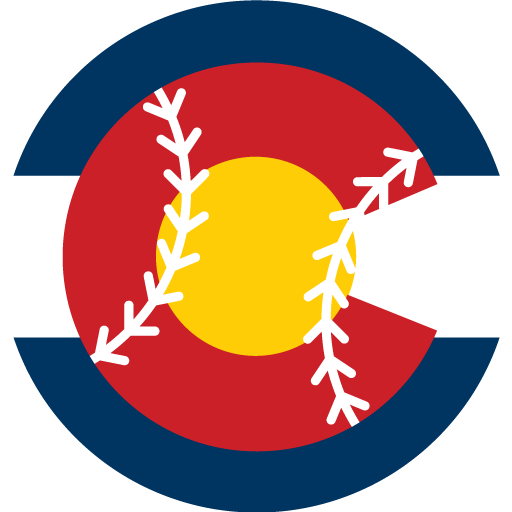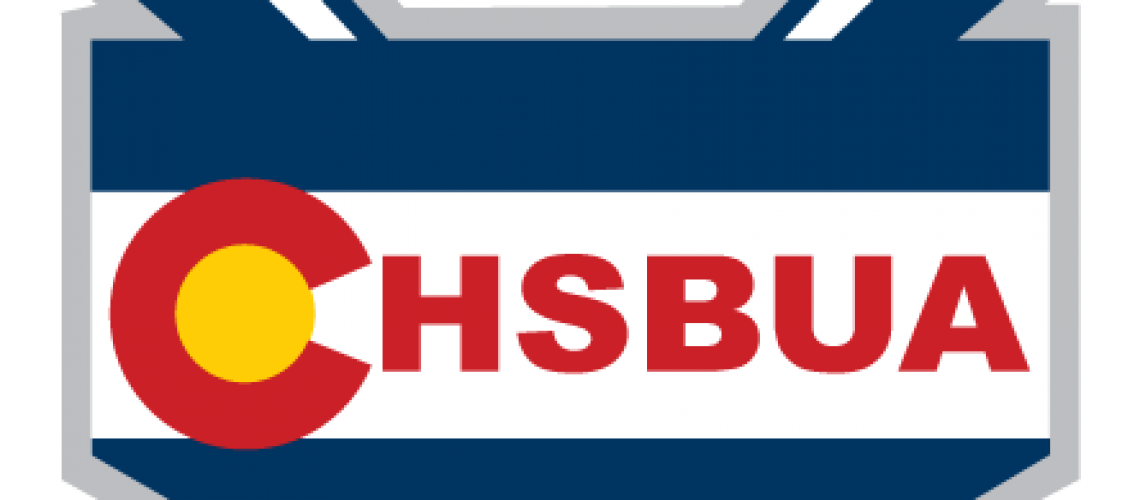The 2019 CHSBUA Master Clinic had some really solid presentations. The rules changes for this season were covered along with interference and obstruction, some game management skills, when to ask your partner for help and a primer for dealing with unruly spectators. A couple of the presentations are supposed to be uploaded to the CHSBUA website so keep an eye out for them.
Colorado High School Baseball Umpire’s Master Clinic
Rules – George Demetriou
Most of this information is covered in the NFHS 2019 Preseason Guide for Baseball. Here are the things George emphasized:
- Pitcher’s Pivot Foot in Set Position
- It is now acceptable for the pitcher’s pivot foot to be partially touching the pitcher’s plate when in the set position. This is to help give pitcher’s flexibility when using a mound that develops holes right in front of the pitcher’s plate.
- NOCSAE Stamped Baseballs
- There is a move coming in 2020 requiring the use of NOCSAE stamped baseballs. It was discovered that there were major variations in production specifications between manufacturers. (The previous NFHS stamp was just for marketing purposes and did not hold manufacturers to any set standards.)
- 2019: Baseballs with NFHS stamp are still acceptable. If you are at a game and the school does not have NFHS stamped baseballs, go ahead with the game and let your area director know so that the state can be informed and follow up with the school.
- 2020: Baseballs must have NOCSAE and NFHS stamps.
- There is a move coming in 2020 requiring the use of NOCSAE stamped baseballs. It was discovered that there were major variations in production specifications between manufacturers. (The previous NFHS stamp was just for marketing purposes and did not hold manufacturers to any set standards.)
- National Anthem Standoff
- Address the situation with the coach to put it to an end. If necessary, the coach might be restricted to the bench.
- During Bert Borgmann’s presentation, he emphasized that CHSAA is hoping there are no ejections because of this rule and would prefer that the issue be reported to your area director after the game so the state can follow up with the school.
- Remaining in Dugout
- Team’s are not allowed outside the dugout during pregame infield practice (disparaging remarks should also be monitored)
- Team personnel must remain in the dugout during live ball situations – including coaches.
- Team’s may come out to celebrate a home run but the plate umpire must be given room to monitor the touching of home plate.
- Intentional Distraction
- Any behavior that the umpire judges to be a deliberate attempt to distract the defense and/or pitcher should be shut down immediately. This includes verbal distractions and actions such as clapping or banging on a fence.
- Interference rules are in the rule book to support the umpire in these situations.
- Any behavior that the umpire judges to be a deliberate attempt to distract the defense and/or pitcher should be shut down immediately. This includes verbal distractions and actions such as clapping or banging on a fence.
- Media on the Field
- NFHS does not support the use of media boxes on the field. They believe it causes unnecessary dead ball situations.
- It is being suggested to schools to not designate media areas. If a designated media box is not marked, umpires should suggest the media stand down the line beyond the infield and next to the fence.
- Without a media box, if the ball hits media personnel, the ball remains live (unless it is deemed the person touched the ball on purpose).
- Mr. Borgmann stated that they have petitioned for a rules change study so that Colorado can continue to use the previous media box rules.
- Past rules: If someone is in the media box and the ball enters it, the ball is dead.
- Past rules: If nobody is in the media box and the ball enters it, the ball remains live.
- Batting Helmet Facemask or Cheek Protector
- Must be NOCSAE certified and approved by the manufacturer for attachment to the helmet
- Catcher’s Chest Protector
- Starting in 2020, all chest protectors will require NOCSAE certification – currently the NFHS is waiting on manufacturers to produce these items.
CHSAA – Bert Borgmann
- Teaching kids proper sporting behavior is important to CHSAA which leads to an emphasis on sportsmanship
- Be judicious, use people skills, remind about the rules and use tools in place for dealing with situations
- This season is one week longer with more regular season games – last game is June 1
- Change has come about to accommodate increased games and weather delays during the playoffs
- 2020 last game will be June 5
- Other points are included above in the Rules notes
Interference/Obstruction – Bob Richardson
Bob’s presentation covered a lot of information. He had a PowerPoint presentation that should be shared soon. Here are some of the major points.
- Get the call right – get with your partner if you need to
- Interference – typically an offensive infraction and can be verbal or physical
- Intent is not a variable – intentional or unintentional interference is still interference
- Three foot running lane infraction
- Plate umpires must get out from behind the plate and monitor for interference
- Has to be an attempt to throw (quality of the throw is not a factor in high school baseball)
- Ball is dead and batter-runner is out – other runners return to base occupied at time of throw
- Runner interference
- Hinders fielder during initial fielding attempt
- Ball hits runner before it has passed all infielders
- Force play slide rule (FPSR)
- For force plays at a base
- Runner is never required to slide
- If they choose to slide, it must be legal (2-32-1)
- Feet first or head first
- At least one leg and buttock on the ground
- In a direct line between bases (force plays only)
- EXCEPTION: A runner may slide or run in a direction away from the fielder to avoid making contact or altering the play of the fielder. (8-4-2b)
- NOTE: On tag plays, the runner is allowed to slide away from the bag as long as they are within reach of the bag with either a hand or a foot. Ex. hook slide
- Verbal interference – commonly happens on fouls balls in front of the offensive team’s dugout
- Catch is made = out & issue written warning to the coach
- No catch = out & issue written warning to the coach
- Umpire interference
- With catcher trying to make a throw – delayed dead ball
- If defense records an out it stands and interference is ignored
- If there is no out, runners are returned to base occupied at time of pitch
- Hit by fair batted ball
- If umpire is hit before ball is touched by infielder or has passed any infielder other than the pitcher – dead ball and runners return to base occupied at time of pitch unless forced forward by batter-runner (batter gets first base)
- If umpire is behind infielders or an infielder has touched the ball – live ball and play on
- Hit by foul batted ball
- Nothing – just a foul ball
- With catcher trying to make a throw – delayed dead ball
- Obstruction – typically a defensive infraction
- Intent is not a variable – intentional or unintentional obstruction is still obstruction
- Fake tag
- Sportsmanship and safety issue
- In addition to obstruction penalty, a written warning should be issued to the coach.
- Blocking base (without possession of the baseball)
- At least partial access to the base/plate must be given
- Awards for bases
- Umpire judgement but runner is given at least 1 base
- Additional bases can be given depending on the situation
- Runner is only protected to the base the umpire judges would have been achieved without obstruction
- Umpire judgement but runner is given at least 1 base
Game Management – Pat Garcia
Advice for handling stressful situations (ex. coaches questioning calls or rules)
- Use head not emotions
- Develop a thick skin
- Stay professional
- Be impartial and know the rules
- Be firm but fair
- Know when to talk and when to listen
- When talking, keep it short
- If you don’t know the rule, don’t try to make something up.
- If they talk loud, you talk softer.
- Stop conversations when coach is repeating themselves
- Move away
- Good time for partner to step in and help direct coach back to dugout
- Be aware of body language and proximity
- Stay neutral with body language
- Getting too close can be threatening (can sometimes stand side by side)
- Don’t argue
- It takes two to argue so don’t fall into that trap and back away from the situation
- Partner can step in and break up situations that are getting out of hand
When to Get Help – Ross Chase
The important thing is to get the call right. That should always be the main goal
- Guidelines
- Always make a call first. Then go to get help (if needed)
- Be approachable by coaches coming to ask if you will get help
- Coaches need to leave the field during the discussion
- Do not allow coaches or players to hear the discussion
- Avoid gestures and head nods
- Umpire the made the original call makes (signals) the final call
- Decreasing potential for coaches asking for help
- Have a good pregame
- Know the rules
- Be in the best position
- Use proper mechanics and timing
- Be confident with your calls
- When you CAN get help (partial list – not all-inclusive)
- Swing or no swing
- Pulled foot
- Swipe tags
- Dropped ball after tag
- Juggled catch at first base
- Home run or ground rule double
- Fair or foul home run
- Catch or no catch with no runners
- Balk when pitcher’s foot might not be on the pitcher’s plate
- Don’t wait to get help on:
- Hit by pitch
- Dropped third strike
- Foul tip
- Batted ball hits batter in the box
- CAN NOT get help on:
- Close calls on force plays
- Non-force tag plays
- Catch or no catch with runners on base
- Checked swing when a strike has already been called by plate umpire
- Fair/foul down the line with runners on
- Other situations to get help
- Rule you aren’t sure about
- Something you didn’t see
- Train wreck (interference/obstruction/malicious contact)
- Partner interprets rule wrong
Unruly Spectators – John Juranek
- Approach field 15 minutes prior to game and get the name of the game administrator
- Get coaches names at plate meeting
- Good practice in general but helps when you have to ask them to help with unruly fans
- Practice good communication to try to avoid issues
- NEVER communicate with fans
- Follow protocol
- Ignore
- Acknowledge
- Warn
- Restrict coach (if behavior hasn’t changed)
- Eject

